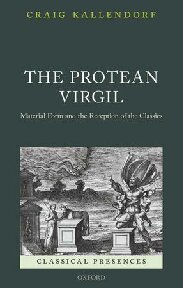

Most ebook files are in PDF format, so you can easily read them using various software such as Foxit Reader or directly on the Google Chrome browser.
Some ebook files are released by publishers in other formats such as .awz, .mobi, .epub, .fb2, etc. You may need to install specific software to read these formats on mobile/PC, such as Calibre.
Please read the tutorial at this link: https://ebookbell.com/faq
We offer FREE conversion to the popular formats you request; however, this may take some time. Therefore, right after payment, please email us, and we will try to provide the service as quickly as possible.
For some exceptional file formats or broken links (if any), please refrain from opening any disputes. Instead, email us first, and we will try to assist within a maximum of 6 hours.
EbookBell Team

5.0
58 reviewsThe manuscript form served to embed Virgil's poetry into Christian culture, which attempted to anchor the content into a compatible theological truth. Readers of early printed material proceeded differently, breaking Virgil's text into memorable moral and stylistic fragments, and collecting those
fragments into commonplace books. Furthermore, early illustrated editions present a progression of re-envisionings in which Virgil's poetry was situated within a succession of receiving cultures. In each case, however, the material form helped to generate a method of reading Virgil which worked with
this form but which failed to survive the transition to a new union of the textual and the physical. This form-induced instability reaches its climax with computerization, which allows the reader new power to edit the text and to challenge the traditional association of Virgil's poetry with elite
culture.